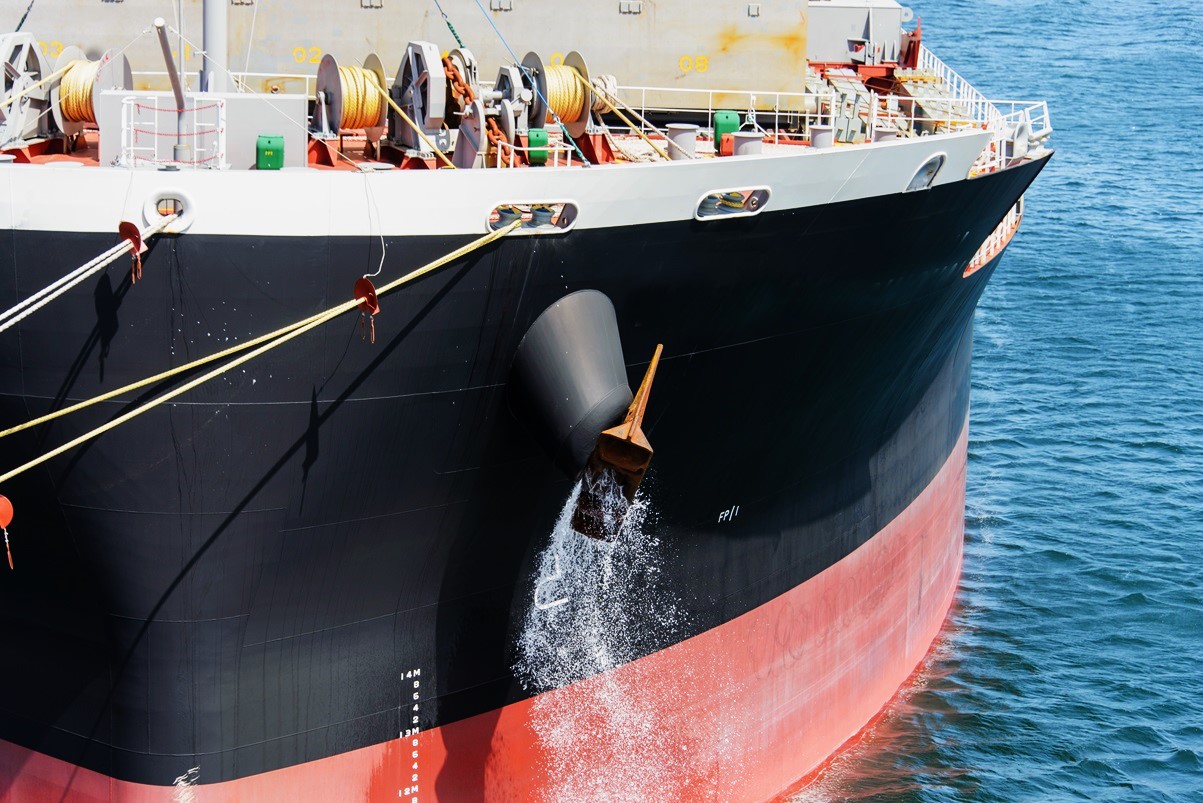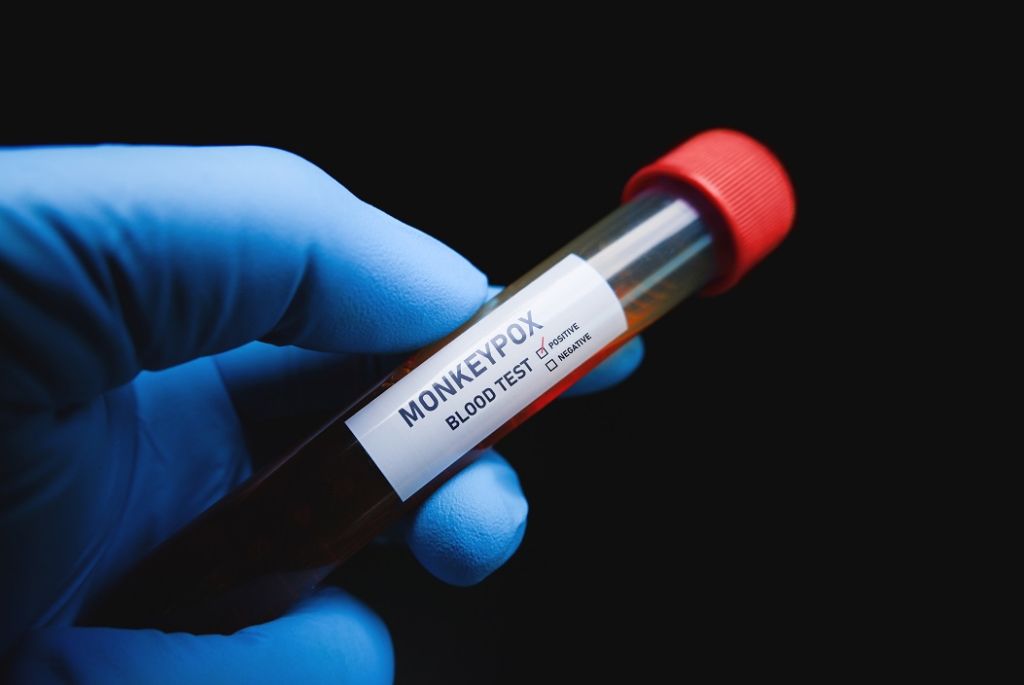
New ballast water requirements at Santos
read more

Federal health agency ANVISA issued recommendations to tackle the transmission of the viral disease in Brazilian ports, airports, and land crossings
Since last May, numerous monkeypox virus (MPXV) cases have been observed in countries that historically have not reported the disease. Just three months after this zoonotic virus spread outside the endemic area, comprising seven countries in Central and West Africa, monkeypox has reached more than 80 countries where this infectious disease is uncommon, including Brazil. (Pictures 1 & 3)

Brazil is now second only to the United States in confirmed monkeypox cases in the Americas and ranks sixth among the most affected countries globally. A substantial increase in confirmed cases was recorded in the past week.
According to the latest data from the Brazilian Ministry of Health, until the first week of August 2022, 2,108 cases of infection with monkeypox were laboratory-confirmed in the country, 1,573 of them in the state of São Paulo alone, with one death recorded in Minas Gerais. In addition, 1,916 suspected cases (642 in São Paulo) were accounted for, and the numbers continue to rise.
Last June, the National Health Surveillance Agency (ANVISA) issued Technical Note 60/2022 with its preliminary guidelines to prevent monkeypox transmission at points of entry into Brazil.

Definitions
According to the new ANVISA regulation, individuals of any age or gender are considered suspected cases of monkeypox if, as of 15 March 2022, they have a sudden-onset fever and enlarged lymph nodes (lymphadenopathy) with an acute and progressive rash. On the other hand, probable cases involve individuals who meet the suspected case definition AND manifest one or more of the conditions listed below, AND have no laboratory confirmation:
Confirmed cases are Individuals who fit the definition of a suspected or probable monkeypox case and have the diagnosis confirmed by laboratory tests. At the same time, those ruled out due to negative test results or diagnosed as having another disease are considered discarded cases.
The diagnosis must be validated by a laboratory referred by the Ministry of Health. Currently, there are eight of them distributed across seven federation states (Rio de Janeiro RJ (2), São Paulo SP, Minas Gerais MG, Rio Grande do Sul RS, Amazonas AM, Pará PA and Federal District DF). (Picture 2)
So far, there is no indication of how long the reference facility will take to release the test results, especially for suspected cases on board vessels and platforms in Brazilian waters. We understand that currently, it may be weeks until the results are disclosed by any of the eight accredited public labs.

Guidance for vessels
ANVISA recalls that its Resolution 584/2021, as amended, remains in effect. This regulation addresses crew changes, seafarers’ repatriation, and shoreside personnel access to vessels and platforms amid the ongoing COVID-19 pandemic. The federal health agency considers that as the transmission of SARS-CoV-2 occurs mainly through droplets from the respiratory tract, the measures recommended in that regulation, such as the use of masks, respiratory etiquette, distancing and cleaning of surfaces, apply synergistically to reduce the risk of spreading both COVID-19 and monkeypox.
ANVISA requires the masters of visiting vessels to record all health events in the hospital’s logbook and the Maritime Declaration of Health (MDH), strictly in the World Health Organization (WHO) format, when requesting free pratique. The master must mark “Yes” on the relevant field on the MDH to report any condition that could be a symptom of infectious disease, including “fever, persisting for several days, glandular swelling, and acute skin rash or eruption“, to flag a suspected case of monkeypox.

Isolation of cases and quarantine
ANVISA requires that suspected and confirmed cases are promptly notified. The persons affected must be isolated in individual cabins to avoid contact with the others on board, with daily monitoring for symptoms, including body temperature, for 21 days. The information collected during the health monitoring must be logged and made available to the health authority for verification.
Disembarkation of suspected or confirmed cases for medical assistance remains allowed with the consent of the port health authority and following local contingency plans.
Those visiting or treating patients must wear a face mask, apron and gloves, which should be replaced and discarded after use. The waste generated during the isolation must be disposed of as potentially infectious residues.
Currently, the port health authority does not advise isolating asymptomatic close contacts. However, it recommends that they be monitored at least daily for up to 21 days.
The regulation is silent about quarantining vessels with cases in isolation, which is otherwise at the discretion of ANVISA in conjunction with the Ministry of Health and other relevant authorities.
To date, no restrictions have been imposed on the embarkation and disembarkation of seafarers (or passengers) from vessels and platforms in Brazilian territorial waters due to the monkeypox outbreak. Nevertheless, shipmasters must record and report health events that may indicate the circulation of infectious diseases among those on board and ensure that the crew is aware of the measures and practices recommended by the competent authorities to prevent dissemination.
While enforcing compliance with the existing COVID-19 regulations and paying close attention to typical monkeypox symptoms, ANVISA has not imposed any restrictions on travel and trade. However, the port health authority recommends that travellers:
The WHO strongly advises persons with monkeypox virus symptoms or who are considered suspected, probable, or confirmed cases, as well as contacts, to avoid travelling as much as possible.
After the multi-country outbreak escalated to a Public Health Emergency of International Concern (PHEIC) in July 2022, the Ministry of Health set up the Public Health Emergency Operations Centre for Monkeypox (COE Monkeypox). COE Monkeypox comprises representatives from various branches of the federal administration, Fiocruz Foundation, ANVISA, and the Pan American Health Organization (PAHO). It aims to streamline the response of the Unified Health System (SUS) to the ongoing health emergency, seeking a coordinated action plan across the three levels of public administration.
Last week, COE Monkeypox issued the National Monkeypox Contingency Plan. The Plan does not introduce specific measures for vessels, platforms or ports. In this aspect, it is limited to remitting to ANVISA Technical Note 60/2022, which, in turn, refers to Resolution 584/2021 mentioned above. As the situation evolves, the document will probably be reviewed and updated in light of new scientific evidence.
ANVISA Technical Note 60/2022 on monkeypox was issued before the WHO declared the monkeypox outbreak a PHEIC – and before the first suspected case in a Brazilian port was registered. Therefore, the port health authority may consider implementing additional measures and guidelines for vessels and crews depending on how the situation unfolds in the coming weeks.
We are monitoring the development of the matter before the relevant authorities. We will endeavour to publish additional information as the health emergency evolves worldwide and in Brazil.
Please follow the links below to websites of authoritative international authorities with detailed information on the monkeypox signs and symptoms, prevention, vaccines, treatment, and how the virus spreads.
* Portuguese only
Please read our disclaimer.
Related topics:
Rua Barão de Cotegipe, 443 - Sala 610 - 96200-290 - Rio Grande/RS - Brazil
Telephone +55 53 3233 1500
proinde.riogrande@proinde.com.br
Rua Itororó, 3 - 3rd floor
11010-071 - Santos, SP - Brazil
Telephone +55 13 4009 9550
proinde@proinde.com.br
Av. Rio Branco, 45 - sala 2402
20090-003 - Rio de Janeiro, RJ - Brazil
Telephone +55 21 2253 6145
proinde.rio@proinde.com.br
Rua Professor Elpidio Pimentel, 320 sala 401 - 29065-060 – Vitoria, ES – Brazil
Telephone: +55 27 3337 1178
proinde.vitoria@proinde.com.br
Rua Miguel Calmon, 19 - sala 702 - 40015-010 – Salvador, BA – Brazil
Telephone: +55 71 3242 3384
proinde.salvador@proinde.com.br
Av. Visconde de Jequitinhonha, 209 - sala 402 - 51021-190 - Recife, PE - Brazil
Telephone +55 81 3328 6414
proinde.recife@proinde.com.br
Rua Osvaldo Cruz, 01, Sala 1408
60125-150 – Fortaleza-CE – Brazil
Telephone +55 85 3099 4068
proinde.fortaleza@proinde.com.br
Tv. Joaquim Furtado, Quadra 314, Lote 01, Sala 206 - 68447-000 – Barcarena, PA – Brazil
Telephone +55 91 99393 4252
proinde.belem@proinde.com.br
Av. Dr. Theomario Pinto da Costa, 811 - sala 204 - 69050-055 - Manaus, AM - Brazil
Telephone +55 92 3307-0653
proinde.manaus@proinde.com.br
Rua dos Azulões, Sala 111 - Edifício Office Tower - 65075-060 - São Luis, MA - Brazil
Telephone +55 98 99101-2939
proinde.belem@proinde.com.br